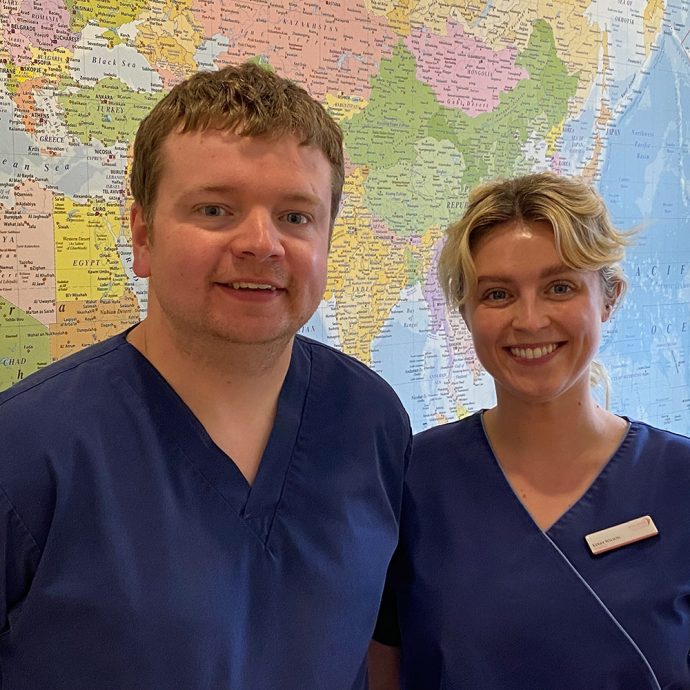
Invisalign Invisible Braces
Invisalign treatment is a great way to straighten your teeth and create the smile that you always wanted. Both Rob Gair and Kerry Wilson provide Invisalign treatment to our patients here at Whickham Dental Practice.
The process starts with a consultation where we discuss the improvements that you would like to see and we can then explain how Invisalign works to achieve this. We take photographs and use a digital scanner to plan the steps ahead.
Invisalign uses a series of clear “aligners” to move your teeth into the desired position. We review your progression on a regular basis and at the end of your treatment will provide retainers to ensure a lasting result. At this stage we often provide whitening treatments to improve your smile even further.
Sometimes after Invisalign, patients may benefit from composite bonding to ‘tweak’ the shape of specific teeth and this can be provided by either Rob or Kerry
Invisalign treatments start from £3000, and the cost of the treatment can be paid in instalments.


Invisalign FAQs
What types of dental problems can Invisalign® correct?
Invisalign® helps to correct a broad range of dental and orthodontic issues, including gaps, crooked teeth, crowded mouths, widely spaced teeth, crossbite, overbite and underbite.
Who is suitable for Invisalign®?
Many people are suitable for Invisalign®, as the treatment can be tailored to individual needs. Adults suffering from a range of orthodontic concerns may be suitable, as are people who wish to improve their smile for their wedding. Teenagers with orthodontic issues may be suitable for Invisalign® Teen.
Will people be able to see my Invisalign® aligners?
As Invisalign® clear braces are transparent, custom-fit and removable; hardly anyone will be able to notice you are wearing the aligners. It is also ok to remove them for special occasions, as long as this is not too regular or for a very long period of time.
How long does Invisalign® treatment take?
Every case is unique to the individual, so treatment lengths will vary. However, the average treatment is 10 to 18 months.